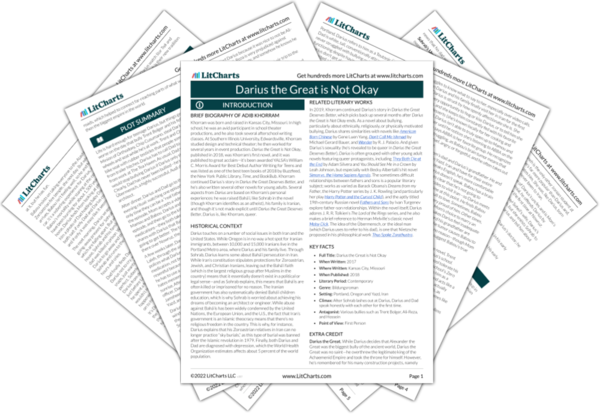AI ToolsNew
Tools to make learning and teaching easier
|
Previous
The Dessert Capital of the Ancient World
|
Darius the Great Is Not Okay: Sins of the Father Summary & Analysis |
Next
The Kolinahr Discipline
|


Upgrade to unlock the analysis and theme tracking for all of Darius the Great Is Not OkayDarius the Great Is Not Okay!
Get LitCharts A+